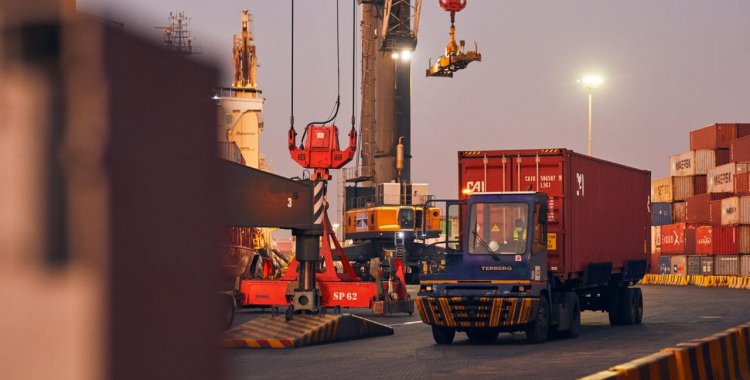The document, entitled "Africa Trade Report 2024" and subtitled "Climate implications of the implementation of the AfCFTA", was presented this Wednesday, the first day of work at the Annual Meetings of the African Export and Import Bank (Afreximbank), which takes place in Nassau until next Friday, in parallel with the 3rd Afro-Caribbean Trade and Investment Forum (ACTIF2024).
The report investigates the impact of the AfCFTA on carbon emissions using the Global Trade Analysis Project (GTAP)-E-Power model, a computable general equilibrium (CGE) model that details emissions from the energy sector.
The document examines the relative climate impact of the AfCFTA in two scenarios. The first simulates its impact on African economies and emissions levels, which implies the introduction of a 97 percent reduction in merchandise trade tariffs and a reduction of non-trade barriers in trade in services.
"Implicit in Scenario One is the assumption that the increase in intra-African trade driven by the application of the AfCFTA will lead to a reduction in extra-African trade", it is considered.
Prepared by a team led by Afreximbank's chief economist, Yemi Kale, the document aligns with a broader technical study on "The implications of decarbonization on Africa's Development Imperatives: Review of the pathways and role of the AfCFTA", commissioned by Afreximbank in 2023, which suggests that abrupt decarbonization could further affect Africa's GDP and merchandise exports by 1 percent and 14.6 percent, respectively.
The assessment also reveals that all African countries recorded an increase in their GDP in the context of the application of the AfCFTA, with Côte d'Ivoire and South Africa recording the largest increases: 7.01 billion dollars and 4.42 billion dollars, respectively.
In addition to those two countries, the biggest increases in trade on the continent were also recorded by Angola and São Tomé and Príncipe, and also the Republic of Congo, Democratic Republic of Congo and Morocco.
The document also reveals that another Portuguese-speaking country, Mozambique, and also Malawi, Mauritius and Togo registered the largest increase in emissions by percentage on the continent, while Côte d'Ivoire, Egypt, Ethiopia, Guinea-Conakry, Morocco, Nigeria and South Africa recorded emissions reductions.
The second scenario introduces the same reductions in tariff and non-trade barriers, but assumes that extra-African trade remains at pre-AfCFTA levels.
The report concludes that, under the conditions in Scenario One, emissions generated by African nations would increase only slightly as a result of the AfCFTA, specifically by 0.08 percent, driven mainly by an increase in imported products used as factors of production.
The report also predicts that in Scenario One, the AfCFTA would lead to a 0.91 percent increase in the continent's GDP, a 33.04 percent increase in intra-African trade and a 1.19 percent global increase in production on the continent.
In this scenario, the report also reveals a marginal decline in extra-African trade with the application of the AfCFTA.
The free trade agreement in Africa, approved in 2019, came into force at the beginning of 2021 and covers a market with more than 1.3 billion consumers.
The treaty, which eliminates customs duties on 97 percent of goods traded between African countries, liberalizes trade in services and improves regulatory and trade infrastructure, with 54 of the 55 member states of the African Union having already signed the founding agreement of the AfCFTA.
Only Eritrea remains out.
More than three thousand delegates, including heads of State and Government from Africa and the Caribbean, began this Thursday, in Nassau, the Afreximbank Annual Meetings (AAAm2024) and the 3rd Afro-Caribbean Trade and Investment Forum (ACTIF2024).
The two events take place under the theme "Owners of Our Destiny: Economic Prosperity on the Global Africa Platform" and will feature debate panels focused on defining solutions to the challenges affecting the economies of Africa and the Caribbean.
The organization announced that it intends to conclude more than 25 investment agreements in what will be a first step towards the creation of an Afro-Caribbean Free Trade Agreement.







